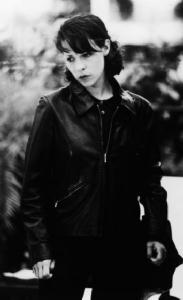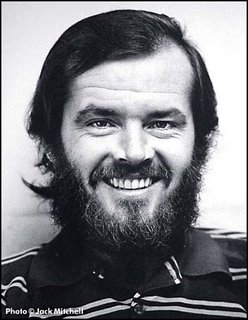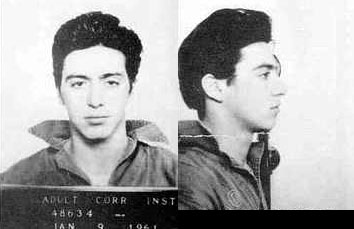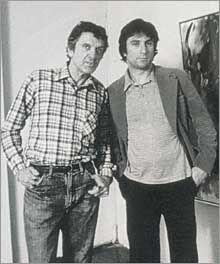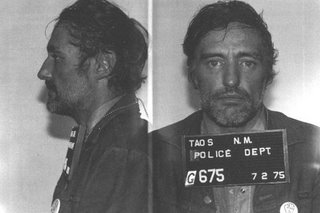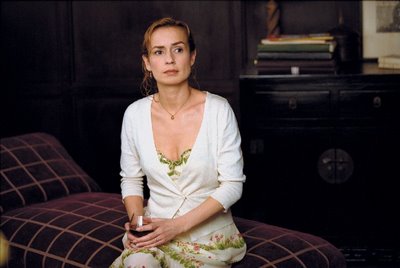
"Writing about
Wild at Heart in 1990, I suggested that Lynch's career seemed to dispute William Butler Yeats's memorable formulation 'In dreams begin responsibilities.' He seemed to be in determined denial about the implications of the violence he trafficked in, with a child's view of good and evil, a formalist attitude toward images and sounds, a solipsistic desire to remain politically disengaged, and a lack of interest in understanding or addressing how the grown-up world works....In
Inland Empire, after 30 years of struggling with studios, he goes further, recording some of his own visceral recoil from Hollywood in general and its meat market in particular -- which makes me wonder if his art has been permanently changed for the better....Lynch also seems to have realized that in Hollywood remaining disengaged and innocent ultimately compromises his freedom as an artist, and like it or not, he's had to take a political stance...." -- Jonathan Rosenbaum
"Cheap DV technology has opened Lynch's mental floodgates.
Inland Empire is suffused with dread of . . . what? Sex, in Lynch, is a priori nightmarish. But there's a sense here that film itself is evil. Movies are all about editing and acting—which is to say, visual lies and verbal ones—and
Inland Empire makes sure you think about both." -- J. Hoberman
"A work of art has no importance whatever to society. It is only important to the individual, and only the individual reader is important to me." -- Vladimir Nabokov
"Suh-weet." -- final word spoken in
Inland EmpireI see a lot of films I like, both in theaters and at home, and even some I love, but very rarely do I have the kind of intense, submerged, transcendent,
and visceral experience I felt while watching (and hearing and feeling and floating in) David Lynch's
new film. I've realized that I don't know or care what words like "masterpiece," "best," or even "good" or "bad" mean, what relevance these words have, even if I still use them too much. I am more interested in my own experiences as an individual, and others' experiences as individuals, than I am in any conventional wisdom, consensus, or consumer guide. I want to know what other people think, not because I'm looking for instruction or direction or advice on how to spend my money, but because I'm interested in their thoughts and ideas as separate entities from my own. I want to enlarge my own experiences by considering theirs. I'm baffled by mainstream criticism's function as a sort of Consumer Reports of art, a test-driving of entertainments as a way to winnow the vastness of human expression down to a narrow list of palatable, suggested consensus favorites rather than an expansion of ideas and experiences. So, I include these four quotes above as possible, valid entry points into the film or four possible avenues of thought after seeing it.
I've long felt a strong, personal connection to Lynch's work, probably because many of his dreamily subconscious dream and nightmare obsessions are also mine: vivid dark-reds and blues, woods and highways at night, match flames, unexplainable feelings of dread, curtains, long hallways, staircases, lightbulbs, lamps, light and shadow, time loops, the shock of self-recognition, voyeurism, beautiful women, menacing dangerous men, time, the strangeness of ordinary objects, aw-shucks folksiness, brutality, humorous non-sequitur. As Jim Emerson suggested in his review, Lynch has been making one long film his entire career, and
Inland Empire strikes me as both a mindfuck summation of everything he's ever done and the beginning of an entirely new way of working. Shot on outdated, cheap digital video,
Inland Empire's look takes some getting used to, especially considering the richly beautiful colors of Lynch's previous shot-on-film work. There are some incredibly ugly visual textures in this film, but also moments of vibrant beauty. Lynch uses the camera like a paintbrush, and the variety and impact of image is astonishing.
Lynch's latest resonated with me in much the same way as two other films I experienced much more intensely than I'm wont to do: John Cassavetes'
Love Streams and Jacques Rivette's
Celine and Julie Go Boating. I'll refrain from slobbering and ejaculating all over my descriptions of these emotionally intense experiences (to see how embarrassing that can be, read Austin Chronicle editor Louis Black's unfortunate gushing
pantswetting for
Pan's Labyrinth). What these very different films have in common, and why I think I feel so strongly about them, is their uncompromising and single-minded devotion to a sustained, dreamlike trip into their authors' subconsious minds and obsessions (that Cassavetes' film is based on a play by Ted Allan does not contradict my statement--Cassavetes rewrote almost every line in the play, keeping only the characters' names, jobs, and relations to each other and kept his friend Allan's name on the film so the playwright could benefit financially). These three films were also written as they were shot, in collaboration with, and functioning as love letters to, the actors appearing in them. The three films also almost completely eschew plot in favor of character, mood, ellipses, and emotion while never sacrificing narrative drive or motivation, and contain many visual references to the directors' other works.

Lynch's film is in many ways his darkest. I don't remember ever being so frightened by a movie as I was by two of the images here. A friend of mine said she was close to having panic attacks a few times during her viewing of the film (she meant this as a compliment, by the way). But as Dennis Lim astutely points out in his review, "
Mulholland Drive may be a more palatable film, but its reality is harsher: a dream overlaid on a nightmare.
Inland Empire is almost all nightmare, and yet, through considerable exertions, it eventually blinks itself awake, or into a state of grace." The closing credits sequence is one of the most joyful scenes I've encountered, and pushed me out of the theater with a real sense of wonder and happiness toward the "wild at heart, and weird on top" world we're temporarily inhabiting.
Perhaps the most impressive aspect of the film is Lynch's sound design. The soundtrack (by which I mean every sound in the movie) could be listened to sans visuals and the experience would be just as intense. Lynch deftly layers low hums, whooshings, breaths, screams, extreme volume fluctuations, echos, chatter, finger snaps, and dissonance with music by Penderecki, Little Eva, Etta James, Beck, Nina Simone, and Lynch himself.
There are a million other things to say about this film, but I'll save them for the next time I watch it.
Reviews:
J. HobermanJim EmersonJonathan RosenbaumDennis Lim


















.jpg)













